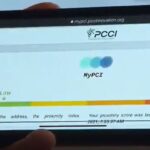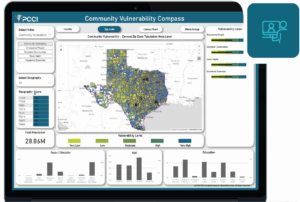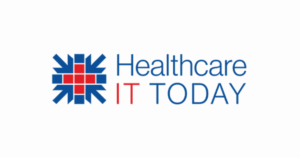
DALLAS – The post-Christmas and New Year’s holidays contributed to soaring risk values recorded by PCCI’s COVID-19 Vulnerability Index, beyond any previously recorded levels. However, with the end of the holiday season, PCCI experts are optimistic that January’s extreme spike is the infection’s peak.
 “With the major 2020 holidays concluded, over the next several months we can see the return to daily life on the horizon,” said Thomas Roderick, PhD, Senior Director of Data and Applied Sciences at PCCI. “With ongoing vigilance, including continued adhering to local health official guidance, social distancing, face covering, and registering for vaccinations as soon as you’re able, we can anticipate that the recent high case counts are behind us.”
“With the major 2020 holidays concluded, over the next several months we can see the return to daily life on the horizon,” said Thomas Roderick, PhD, Senior Director of Data and Applied Sciences at PCCI. “With ongoing vigilance, including continued adhering to local health official guidance, social distancing, face covering, and registering for vaccinations as soon as you’re able, we can anticipate that the recent high case counts are behind us.”
Launched in June, PCCI’s Vulnerability Index determines communities at risk by examining comorbidity rates, including chronic illnesses such as hypertension, cancer, diabetes and heart disease; areas with a high density of populations over the age of 65; and increased social deprivation such as lack of access to food, medicine, employment and transportation. These factors are combined with dynamic mobility rates and confirmed COVID-19 cases where a vulnerability index value is scaled relative to July 2020’s COVID-19 peak value. The PCCI COVID-19 Vulnerability Index can be found on its COVID-19 Hub for Dallas County at: https://covid-analytics-pccinnovation.hub.arcgis.com/.
While there are signs that the recent peak may be over, January’s Vulnerability Index numbers showed that Dallas County was severely battered by COVID-19, especially in the ZIP codes struggling with socioeconomic issues. For example, the ZIP code 75211, around Cockrell Hill, continues to top the most at-risk area in Dallas, as it has since the Vulnerability Index began recording data in June. However, in January, 75211, the area exceeded the record value that it set in December, increasing its vulnerability value by 38.9 points. The ZIP code 75243 holds the position as the second most vulnerable area in Dallas County with a vulnerability value of 129.99.

“The ZIP codes, 75211 and 75243 are two areas of Dallas County facing the highest socioeconomic challenges; the fact that they are the most identified as highly vulnerable to COVID-19 shows how the PCCI Vulnerability Index is helping shine the
light on where the help is needed most,” said Dr. Roderick. “The entire healthcare community in Dallas County is striving to equitably mitigate the spread of COVID-19, and the Vulnerability Index offers factual data to support that effort.”
Other ZIP codes with major leaps in their vulnerability values include 75217, 75204 and 75040. The top-most vulnerable ZIP codes averaged a vulnerability value of 100.53 in January compared to the top-most in December that averaged a vulnerability value of 79.77, underscoring the rise in cases from mid-December 2020 to mid-January 2020.
PCCI recently launched the MyPCI App, another program to help inform the residents of Dallas County to their individual risks. The MyPCI App, free to register and use, is a secure, cloud-based tool that doesn’t require personal health information and doesn’t track an individual’s mobile phone data. Instead, it is a sophisticated machine learning algorithm, geomapping and hot-spotting technology that uses daily updated data from the Dallas County Health and Human Services (DCHHS) on confirmed positive COVID-19 cases and the population density in a given neighborhood. Based on density and distances to those nearby who are infected, the MyPCI App generates a dynamic personal risk score.
To use the MyPCI App, go to, https://pcci1.wpengine.com/mypci/, click on the link and register (Using code: GP-7xI6QT). Registration includes a request for individual location information that will be used only for generating a risk assessment, never shared. Once registered, simply login daily and a COVID-19 personal risk level score will be provided along with information to help individuals make informed decisions about how to manage their risk.
“We have seen that proximity is one of the most important factors in pandemic management and personal protection,” said Dr. Roderick. “While we wait for vaccine programs to take hold, we can use the MyPCI App to control our own risk of exposure and help bend the curve.”
Data Sources:
To build Vulnerability Index, PCCI relied on data from Parkland Health & Hospital System, Dallas County Health and Human Services Department, the Dallas-Fort Worth Hospital Council, U.S. Census, and SafeGraph.
About Parkland Center for Clinical Innovation
Parkland Center for Clinical Innovation (PCCI) is an independent, not-for-profit, healthcare intelligence organization affiliated with Parkland Health & Hospital System. PCCI leverages clinical expertise, data science and Non Medical Drivers of Health to address the needs of vulnerable populations. We believe that data, done right, has the power to galvanize communities, inform leaders, and empower people.
###






